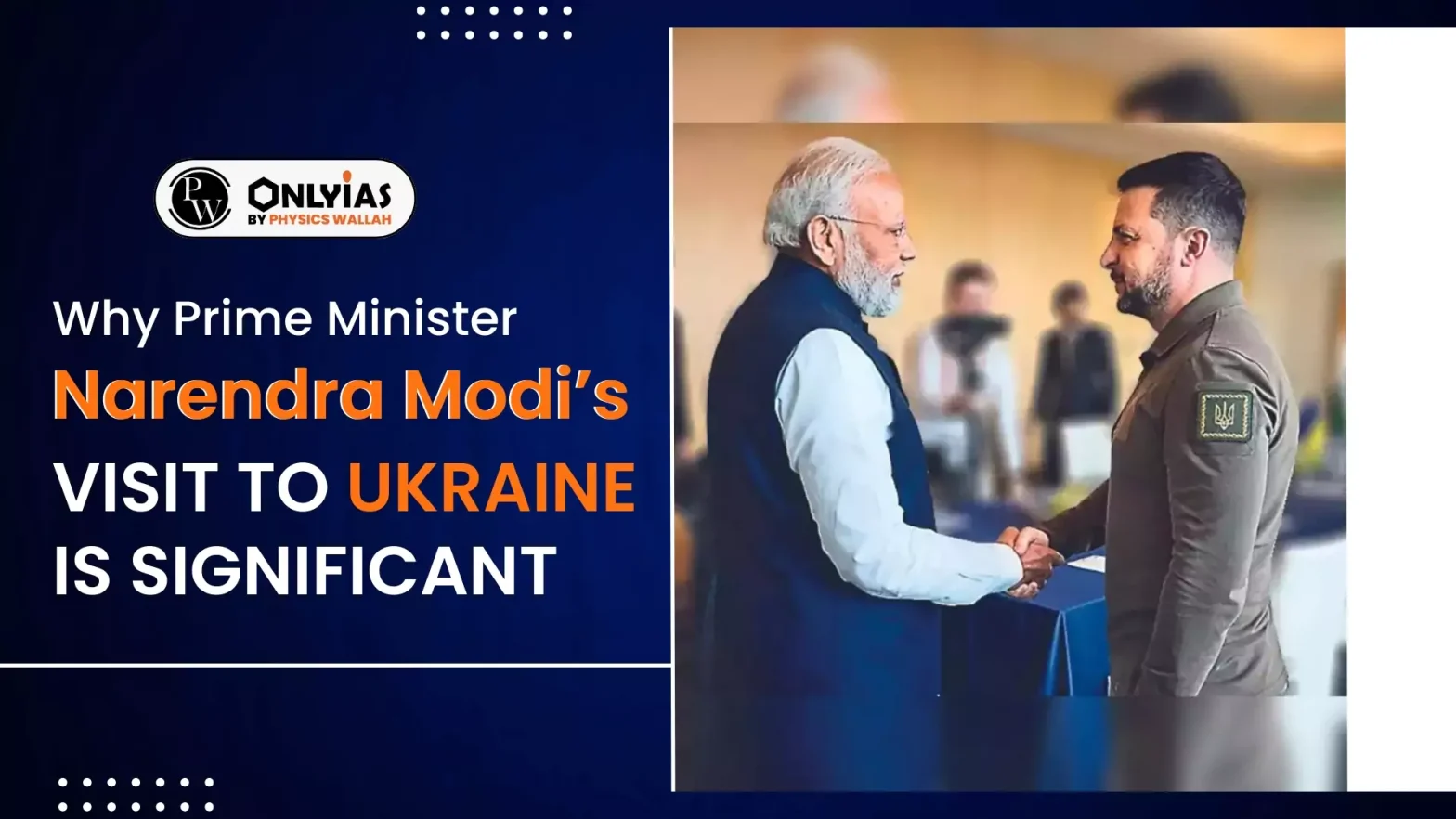![]() 23 Aug 2024
23 Aug 2024

Prime Minister Narendra Modi’s visit to Kyiv marks a historic moment as he becomes the first Indian Prime Minister to visit Ukraine since diplomatic relations were established in 1992. This visit follows Modi’s recent meeting with Russia’s President Vladimir Putin and signifies a notable shift from India’s traditional foreign policy stance, which has long been characterised by strong ties with Russia, rooted in the Cold War era.
The ongoing conflict between Ukraine and Russia, which began in 2022, has been a focal point in global diplomacy. India has maintained a neutral stance throughout the war, balancing its longstanding relationship with Russia while navigating international pressure. This neutrality is viewed differently by various global actors; for instance, the U.S. and Ukraine consider Russia the aggressor and have urged India to take a clearer stance.
India’s shift in policy and Modi’s visit to Ukraine can be seen as part of India’s evolving foreign policy. Ukraine, after the dissolution of the USSR, was not a focus of India’s foreign policy, which had been predominantly oriented towards Russia. This visit signals a broader attempt by India to diversify its international relationships and assert a more active role in global politics.
India’s interest in Ukraine is driven by several factors:
| Impact on India-Russia Relations:
Experts suggest that while Modi’s engagement with Ukraine represents a shift, it is unlikely to negatively impact India’s relationship with Russia. India continues to maintain strong ties with Russia, reflecting its policy of balancing relationships, similar to its approach with Iran and Saudi Arabia. Modi’s visit to both Poland and Ukraine illustrates a broader strategy to enhance ties with Central and Eastern Europe, without compromising long standing relationships. |
|---|
For decades after Independence, Europe remained a relatively low priority in Indian foreign policy, focusing mainly on relations with the major European powers—Russia, Germany, France, and Britain. India’s earlier policy of non-alignment is shifting towards maintaining close ties with a broader range of countries. Prime Minister Modi has termed this new approach as “vishwabandhu,” aiming to position India as a global peace-maker and a proactive player on the world stage. This evolving policy offers both economic and strategic benefits, marking a significant departure from previous practices and showcasing India’s broader engagement with the international community.
| Mains Question: |
|---|
<div class="new-fform">
</div>